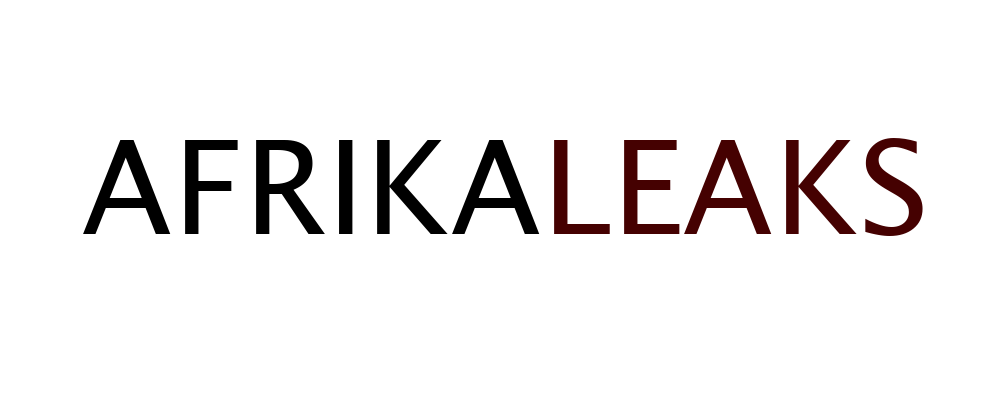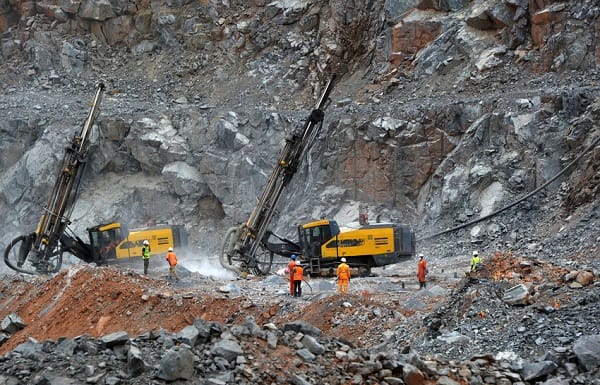A former Minister of Mines with whom I had the honor of exchanging ideas told me this anecdote that I will try to relate to you:
“In 1974, we were on a mission in France, for a conference on the mining potential of Africa. Back at my hotel, I was politely approached by a man who wanted to talk to me. But the interview lasted only a few seconds. This man handed me a voluminous folder containing precise and detailed documentation on the real mining potential of Côte d’Ivoire. Geological maps, satellite photos and a whole bunch of data that revealed significant deposits of copper, bauxite, nickel, manganese, iron, oil, diamonds and gold. This documentation, because it was 1974, was the total antithesis of what we had as information. He handed me this document and slipped away discreetly. On my return to Abidjan I informed only President Houphouët, to whom I gave all the original documents. The next day Houphouët summoned me. I was convinced that he would take me for a madman or an affabulateur. But strangely enough it was not so. The old man replied that it was probably the American or Russian services that approached me. According to him, it was the continuation of their quarrel between Russians, French and Americans over our resources. And he added that he already had this data that Israelis based in South Africa had sent him. »
In this story, which I know by heart because this minister has often told me so many times, I note four points in hindsight today:
- The official data on the mining potential of our country, including those from the colonial administration, were probably deliberately incomplete.
- According to Houphouët, the Americans, Russians and French were engaged in a war of economic [and political] influence on the continent, with one of the major stakes being mining resources.
- The implicit involvement, according to Houphouët and according to this testimony, of the Israelis via their South African allies, experts in mining.
- And finally, I note that our country was reputed to have strong mining potential as early as the 1970s, but this was not known to the general public.
However, it was France, after several years of research on the high seas via the Bureau de Recherches de Pétroles (BRP) Elf, which had declared that Côte d’Ivoire was “oil neutral”. This expression means that there is no oil or that its exploitation would be so expensive that it would become economically unviable. But strangely enough, meanwhile, Houphouët has done nothing but lead the way, going against the advice of the donors, to the point of building the SIR, a huge oil refinery. The project at the time was rightly considered megalomaniacal for a country that does not produce oil.
But Houphouët knew what he was doing by being stubborn. Apparently he and his teams, including the young Adama Tounkara, then director of hydrocarbons from 1971 to 1975, had strategic information but probably not the technology, expertise and adequate means of control to be able to exploit these resources without being swindled. And that’s the right term, because these powers that were engaged in this struggle for geostrategic and economic influence, in this period of the Cold War, were anything but philanthropic. On the other hand, other African countries, such as Guinea, Niger or DR Congo, very quickly gave in to temptation. 50 years later, we have seen the medical result that it gave in terms of development, in these deals in the form of open mine scams, where there is a winner, the exploiter, and a loser, the exploited country.
We are in September 2020. In terms of African mining potential and that of Côte d’Ivoire, based mainly on geographical and geological criteria, the DR Congo is the first destination for foreign investors. The continent’s leading copper producer ranks 7th in the world, followed by….. Côte d’Ivoire (9th), Zambia (27th) and Mali (29th). And of course our country is not an oil-neutral country, as stated by the French-based Bureau de Recherches de Pétroles (BRP).
Every year the Fraser Institute makes this ranking of the world’s countries, based on the attractiveness and potentiality of their mining sector. For the 2016 ranking, for example, it analyzed the responses of 350 actors in the sector to a questionnaire on 15 factors that influence companies’ decisions to invest in the countries. These included government regulations, the legal system, the tax system, infrastructure, political stability, labor laws, geographic research, and the ability to attract and retain investment.
And figure that 50 years after this man came to hand over these documents that already proved that our country was a true Eldorado in terms of mining, the Fraser 2016 ranking placed Côte d’Ivoire in 1st place in Africa among countries with strong mining potential, ahead of Botswana, Ghana and even ahead of the DR Congo which is nevertheless the reference of references: self service of the West in terms of rare minerals. I say 1st African! And Côte d’Ivoire is even 17th in the world out of 194 countries. The potentiality being the character of what is possible, if the management of these potential resources is optimal, only the sky will be the limit for the development of our country.
Dedication to Marcel De Kouamé

